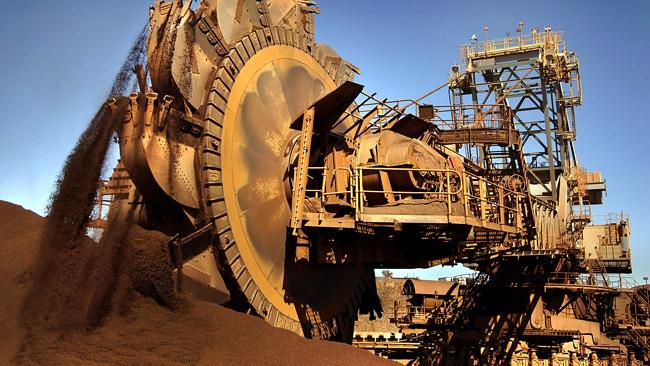
Fly-in, fly-out workers are up to 70 per cent more likely to suffer mental health problems than the general Australian population, new research reveals.
The biggest “stressors” for employees are isolation from families due to “length of swing” and senior management.
Missing special events, such as anniversaries and birthdays, financial pressures and relationship breakdowns are the biggest family-based issues.
The Australasian Centre for Rural and Remote Mental Health told a parliamentary inquiry into the mental health impacts of FIFO work it had conducted the most comprehensive study of the workforce.
It is based on 994 workers from six mine sites spanning iron ore, gold and natural gas.
The study found at some sites the prevalence of “psychological distress” was as high as 34 per cent.
The centre said the national average was 20 per cent.
It said there were several “distinguishing features” of the research “which render the results powerful”, including the big sample size and high response rate.
The ACRRMH delivers mental health programs for the resources sector.
The centre’s chief executive Jennifer Bowers said the “macho” world of mining meant too many were not farsighted enough to accept suicide was a significant issue. “The centre’s work has been prosecuted with no support from any government agency despite repeated representations and applications,” Dr Bowers said.
“It is depressing to consider how many lives might have been changed, indeed saved, if government had been listening and prepared to assist.”
Big mining companies and lobby groups have claimed there was no greater prevalence of mental health problems in the sector.
The Chamber of Minerals and Energy, which is funded by mining companies, said it would be “overly simplistic” to argue a particular demographic was predisposed to mental health issues.
“Especially where there is no evidence resources sector employees experience higher rates of mental illness than the general population,” its submission said.
The CME said it was against “unnecessary reporting obligations” on companies and “strongly” opposed expanding the definition of a workplace to include accommodation arrangements set up by mining companies for employees.
A submission by the Mental Health Commission confirmed mental health problems and heavy drinking were “prevalent” among FIFO workers.
A study by the MHC warned some employees relied on alcohol and drugs to cope with loneliness and stress.
And Lifeline WA, in its submission, said lobby groups comparing the overall suicide rate in WA with FIFO workers were “not useful”.
Chief executive Fiona Kalaf said WA’s overall suicide rate was “influenced heavily” by Aboriginal suicide, which if removed would make the rate “materially lower”.
Memorial a life saver
Anita Miller is a life saver.
The softly spoken Oldbury bookkeeper may not seem a likely crusader.
Yet, her refusal to keep quiet after her son Rhys Connor took his own life in the Pilbara has swept through the macho world of mining like a tornado.
When she spoke out with her family in The Sunday Times last year, we revealed the State Coroner was investigating potential links in the suicide deaths of several fly-in, fly-out workers.
The Millers released their son’s suicide note and a short video interview he had conducted for a yet-to-be-released documentary warning about the pitfalls of FIFO work. Over a series of weeks, other families came forward emboldened by their first steps. Revelations of a mounting death toll eventually forced a parliamentary inquiry.
“Every time someone reaches out to say we’ve inspired them to seek help or be honest about their mental health issues, I know we did the right thing,” Ms Miller said.
“It was never about the ‘blame game’ — it was about the ‘change game’ and reducing the stigma.”
The FIFO inquiry has received about 75 written submissions and held about 20 public hearings.
An interim report released in November raised major concerns about the lack of statistics on mental health incidents in the industry and a “toughen up princess” culture so bad workers were afraid to take medication.
A final report is due in June.
Ms Miller hopes it will demand better reporting, mandatory minimum standards of on-site care and more family friendly rosters.
Source: PerthNow